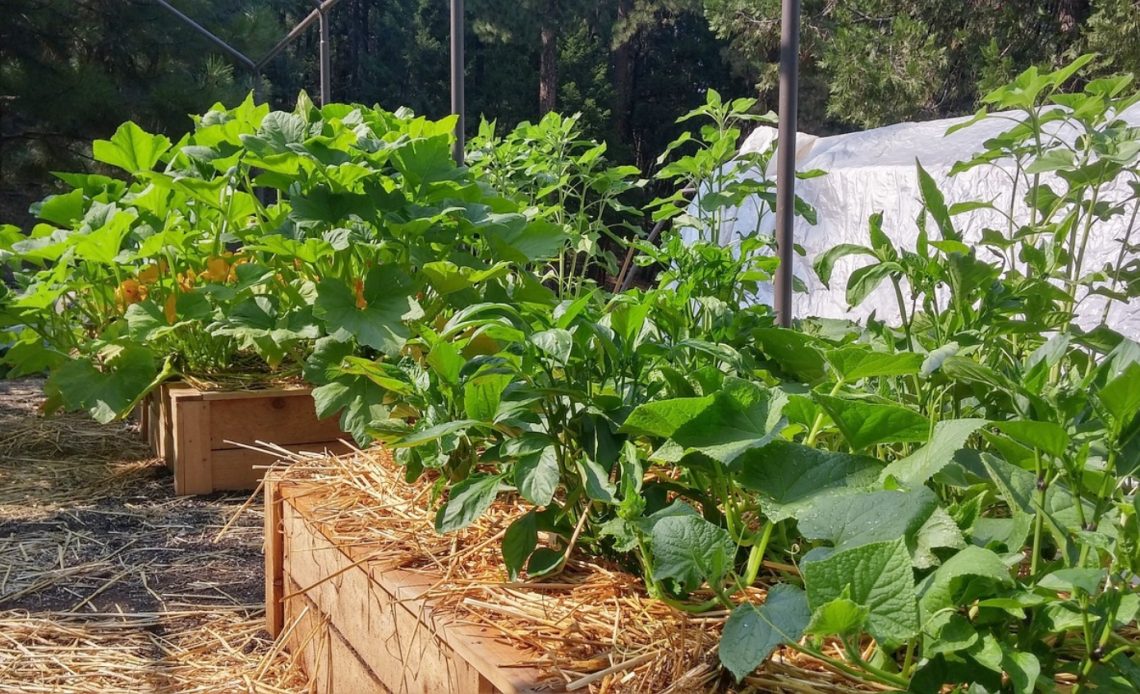

We’re here to help! Wild Yards is a completely free website that is 100% dedicated to helping you create a wildlife-friendly, sustainable yard. Read more
WildYards is reader-supported. When you buy a product through a link on our site, we may earn a comission. Every product is independently selected by our (obsessive) editors and our reviews are unbiased and objective. Read more about our mission or our privacy policy.
For many of us, gardening started as a hobby. But as you become more and more invested in watching your plants grow, it quickly becomes more than a pastime. Gardening is about working with nature, supporting beneficial insects, and helping the environment, just as much as it is about getting delicious homegrown fruits and veggies. Today, we’re diving deeper into the importance of organic gardening, to find out just how much it supports the world around us.
Organic gardening keeps harmful contaminants, like herbicides, pesticides, and fertilizers, out of the environment, reducing pollution. It also helps control stormwater and prevents erosion, all while supporting a healthy soil microbiome.
What are the benefits of organic gardening?
If you have a garden, that’s great! Growing a garden in your backyard is a huge step in the right direction. But if you go organic? Hey, that’s even better!
Organic gardening strategies have many advantages to offer. Here are 7 amazing benefits of growing an organic garden.
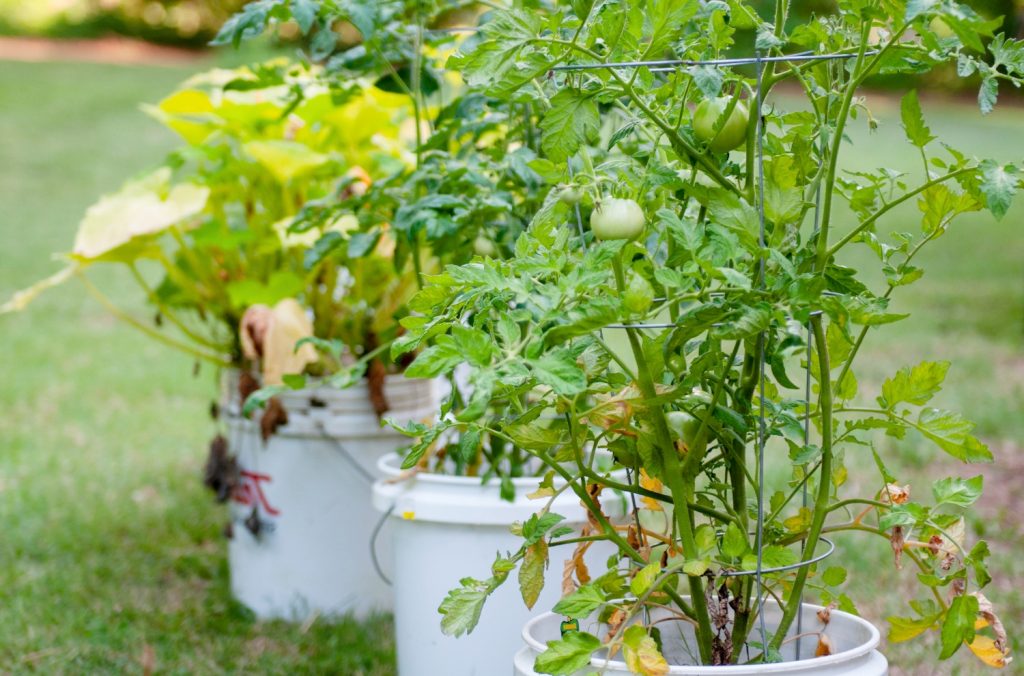
Organic gardening reduces pollution
Organic gardening often gets labeled as time-consuming and difficult. But once you know which tools and materials you need, and for which purposes, organic gardening is easy.
An organic garden does not rely on chemical-based herbicides, fungicides, pesticides, or fertilizers.
Instead, an organic garden is one that utilizes natural products to feed plants, fight off pests and diseases, and eliminate weeds.
Natural soil amendments, like manure and compost, are great options for enriching soil naturally. These materials are full of nitrogen, phosphorus, potassium, and trace minerals that plants need to survive.
Meanwhile, weeds can be eliminated with the help of a dense layer of organic mulch. Old hay, lawn clippings, wood chips, and even shredded paper block the sunlight and prevent weeds from sprouting up.
Organic gardeners have many tools up their sleeves when it comes to clearing weeds out of their vegetable patches.
A weed torch, boiling water, or even baking soda and vinegar can help spot-treat weeds without introducing damaging chemicals into the soil and local waterways.
Natural ingredients can also be used to make herbicides and pesticides.
A teaspoon of dish soap and a teaspoon of vegetable oil in a quart of water help treat powdery mildew. Add a bit of neem oil or strong-smelling essential oil to the mix, and you’ve got a chemical-free insecticide you can use to prevent and treat infestations.
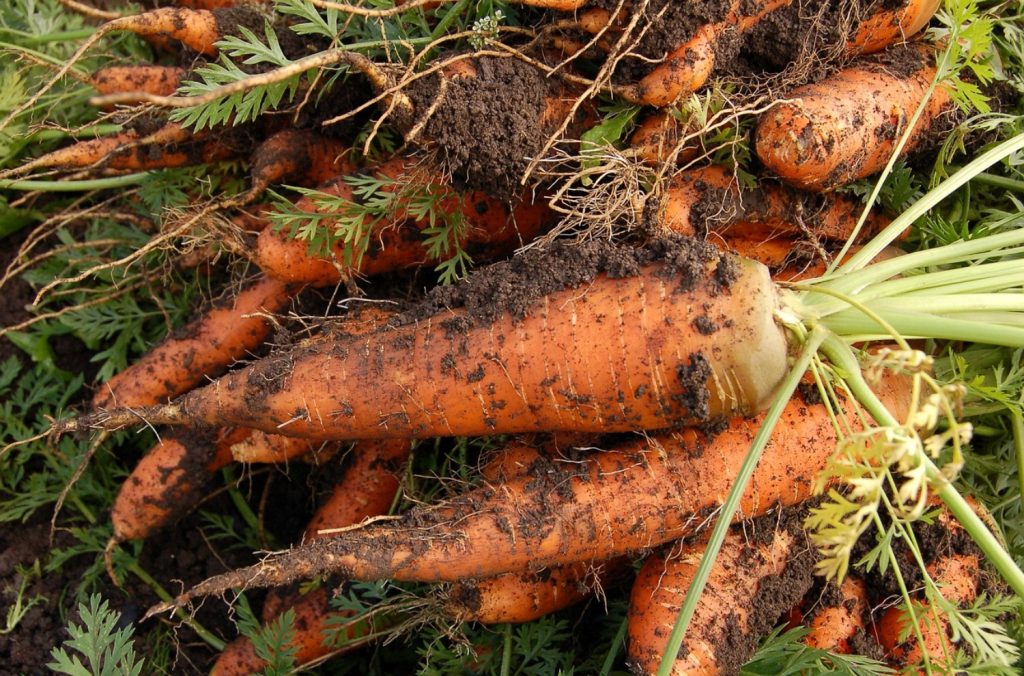
Organic gardening supports local pollinators
The main benefit organic gardens have to offer is that they take chemicals out of the gardening process. This means toxic pollutants won’t be introduced into the soil, flushed into local waterways, or brought to your dinner table.
It also means your local pollinators won’t be exposed to these harmful chemicals.
Herbicides, pesticides, and synthetic fertilizers spell trouble for pollinators like bees, wasps, butterflies, and hoverflies. These chemicals can alter the way pollinators detect flowers, making it difficult for them to track down food sources.
Because chemical-based products alter the way pollinators navigate, they may have trouble returning to their hives or locating new food sources. Direct contact with chemical-based gardening products alters reproduction in many pollinators as well.
For instance, one class of herbicides, neonicotinoids, can not only disrupt learning and recall in bees, but it can also reduce the viability of their sperm, reducing bee populations, and potentially resulting in worldwide decline.
By simply keeping these damaging products out of the environment, your organic vegetable garden can be an invaluable food source for pollinators.
Keeping these insects healthy enables them to pollinate native plants throughout your ecoregion, providing food for other forms of wildlife, including birds, squirrels, and deer.
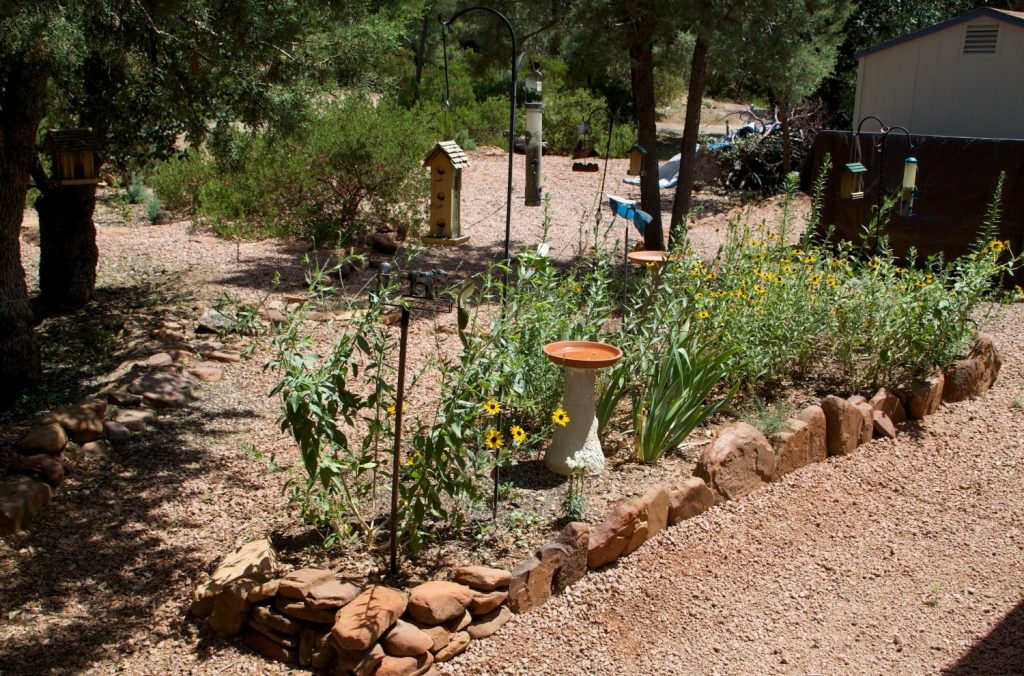
Organic gardening improves soil health
Your local bees and butterflies aren’t the only ones who benefit from organic gardening. The very soil itself will become healthier, especially as time goes on.
Many growers use synthetic fertilizers to feed their plants. These fertilizers may meet the plant’s nutritional needs, but they do nothing to enrich the soil. In fact, over time, synthetic fertilizers can be incredibly detrimental to soil health.
But organic fertilizers, like fish meal, feather meal, and worm castings are full of decaying materials that don’t just feed your plants. These substances nourish the healthy bacteria in the soil. These bacteria, in turn, break down the nutrients in the fertilizers, making them easier for your plants to absorb.
Research shows that supporting healthy bacteria in your soil can improve your garden’s resistance to diseases.
Every season, as more and more organic materials are added to the soil, your garden’s substrate becomes even more nutritious, creating a symbiotic environment between your soil and the fruits and vegetables you grow in it.
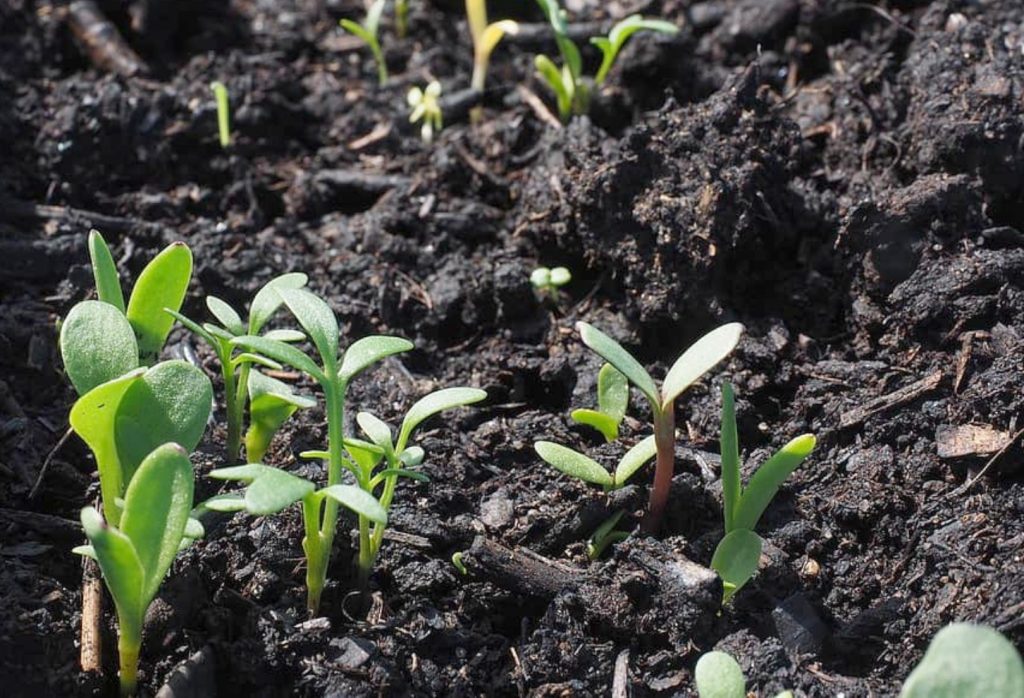
Organic gardens produce tastier fruits and veggies
Because organic gardens focus on feeding the soil, rather than simply meeting the crop’s nutritional needs, they can enhance the flavor and quality of your harvest.
Plants rely on large doses of nitrogen, phosphorus, and potassium to survive. So much so that many growers focus solely on meeting their crop’s demands for these elements.
But fruits and vegetables need a spectrum of trace minerals to perform a variety of enzymatic and metabolic processes.
Organic fertilizers, like rice water and kelp meal, further enrich the soil, adding valuable trace nutrients that allow your crops to produce the tastiest fruits and vegetables possible.
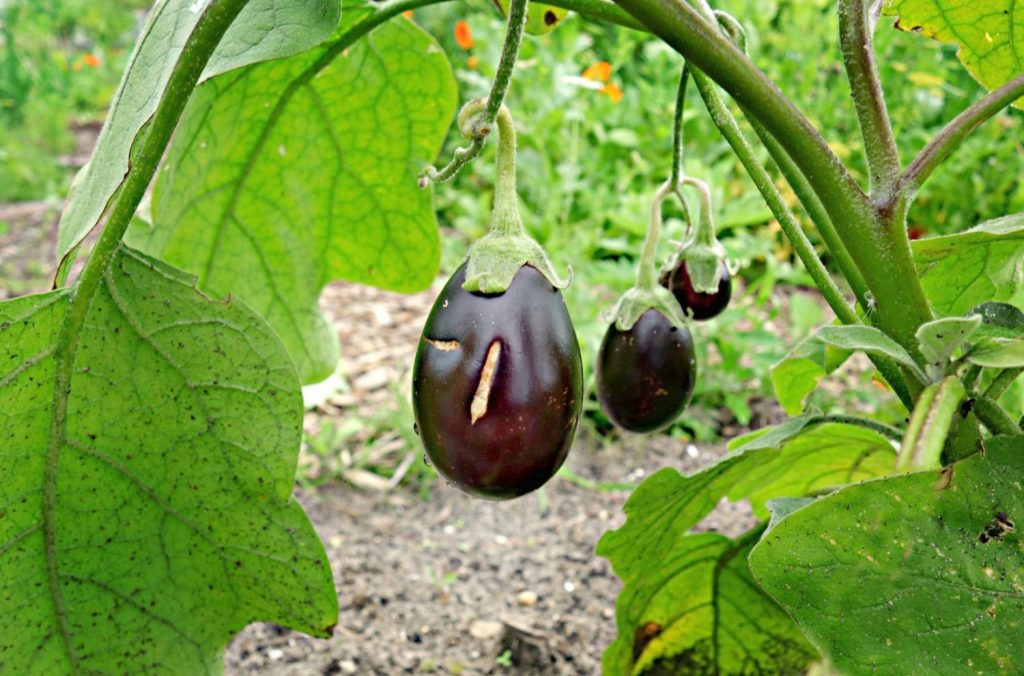
Organic gardening saves money
Another clear benefit that organic gardening has over traditional gardening methods is that organic gardening is often much cheaper.
Many of the materials needed to enrich the soil can be sourced locally.
Maybe your neighbor has a ranch and raises cows and horses. Or maybe they raise backyard chickens. This gives you access to a variety of nutritious manures to feed your garden.
Mulches can also usually be found locally. Contact your local sawmill about purchasing wood chips for your garden. They often sell them for much cheaper than garden centers or hardware stores.
Organic gardening also gives you the opportunity to cut down on your household’s waste.
You can add table scraps, cardboard, shredded paper, and other biodegradable materials to a compost heap to make your own fertilizer for your garden.
Instead of bagging up the leaves you raked for the garbage truck to haul off, you can repurpose them by using them as mulch in your garden.
When you garden using organic means, your opportunities to reduce, reuse, and recycle are endless! And they can end up saving you a ton of money on gardening materials.
Organic gardening controls stormwater and reduces erosion
Another important aspect of improving the health of the environment is keeping topsoil in place.
Erosion reduces available farmland, meaning less produce. Naturally, erosion also has a negative impact on oxygen production needed to offset carbon emissions.
Many organic gardeners use rain barrels and other containers to store rainwater, reducing runoff.
Runoff in and of itself is not necessarily a bad thing. But runoff that flows through lawns, ditches, and gardens that have been treated with chemical-based fertilizers carries these substances into local waterways. And that’s no good.
Organic gardens can be placed in low areas of your backyard to absorb standing water before it gets a chance to flow into local waterways.
If your property is situated on a slope, you can arrange your garden to grow up the hillside. This doesn’t just reduce runoff, it also helps prevent erosion.
Certain garden plants have more extensive root systems than others. Sprawling plants like watermelons, pumpkins, and cucumbers tend to produce shallow, but widespread root systems.
Growing a variety of garden plants up a slope helps hold the soil in place. Planting a few eco-friendly trees and shrubs can prevent erosion as well.
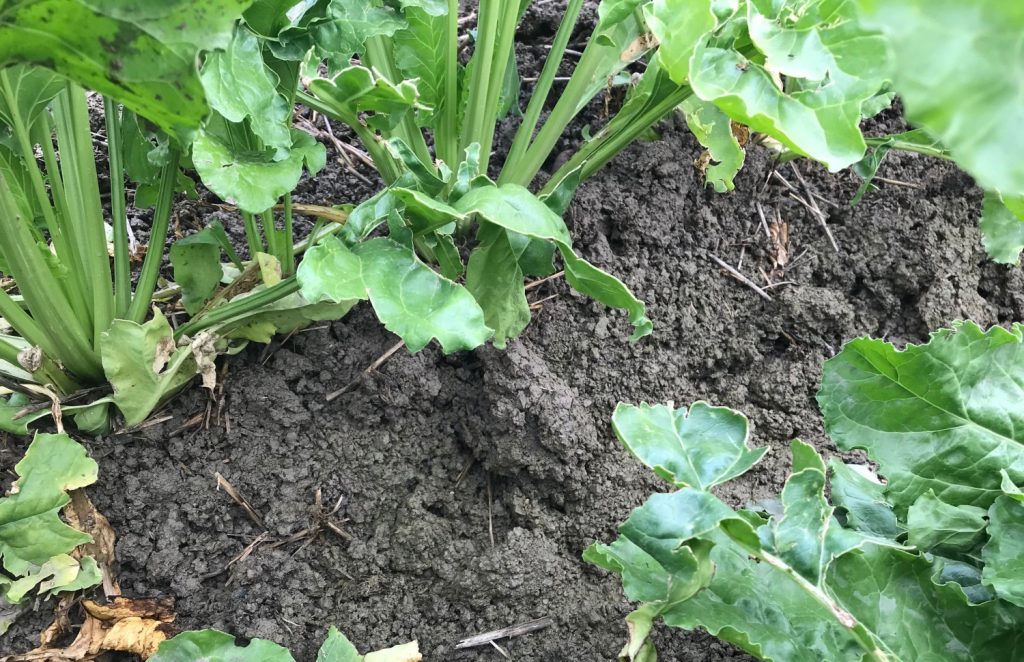
Organic gardening is good for your health, too!
Organic gardening has the potential to benefit the environment in so many ways by keeping damaging chemicals out of the air, soil, and groundwater.
An organic garden helps keep beneficial insects healthy, too, and when your local pollinators are thriving, your entire ecoregion will reap the benefits.
But, let’s not forget, an organic garden is good for you and your family!
When you garden sustainably without the use of chemical-based products, you can rest easy knowing you’re doing everything you can to keep your loved ones healthy.
Many chemical-based gardening products contain endocrine disruptors, substances that have been shown to alter the way the body produces and uses hormones.
These substances can have devastating consequences for your health and have been linked to a variety of conditions, including Alzheimer’s, cardiovascular disease, and infertility.
Although these endocrine disruptors can be found in a variety of household products, including soaps, cleaning products, and makeup, gardening without the use of these chemicals is a good way to cut down on your family’s exposure to them.
Furthermore, organic gardening is good for your mental health.
Studies have long shown that gardening can reduce stress levels. Spending time in nature lowers blood pressure, controls anxiety, improves mood, and enhances the immune system.
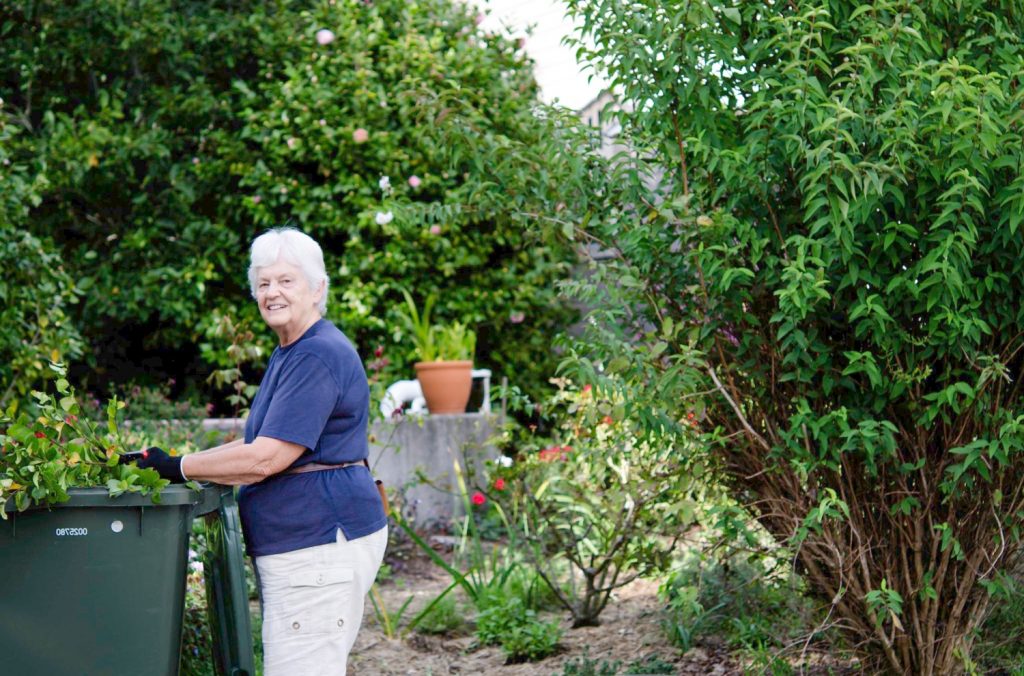
Start an organic garden today
Organic gardening isn’t just good for the environment, it’s good for the body, the mind, and the soul!
So do yourself and your ecosystem a favor. Ditch those chemical-based products and start growing organically. Once you get a taste of your first organically grown harvest, you’ll be glad you did!
